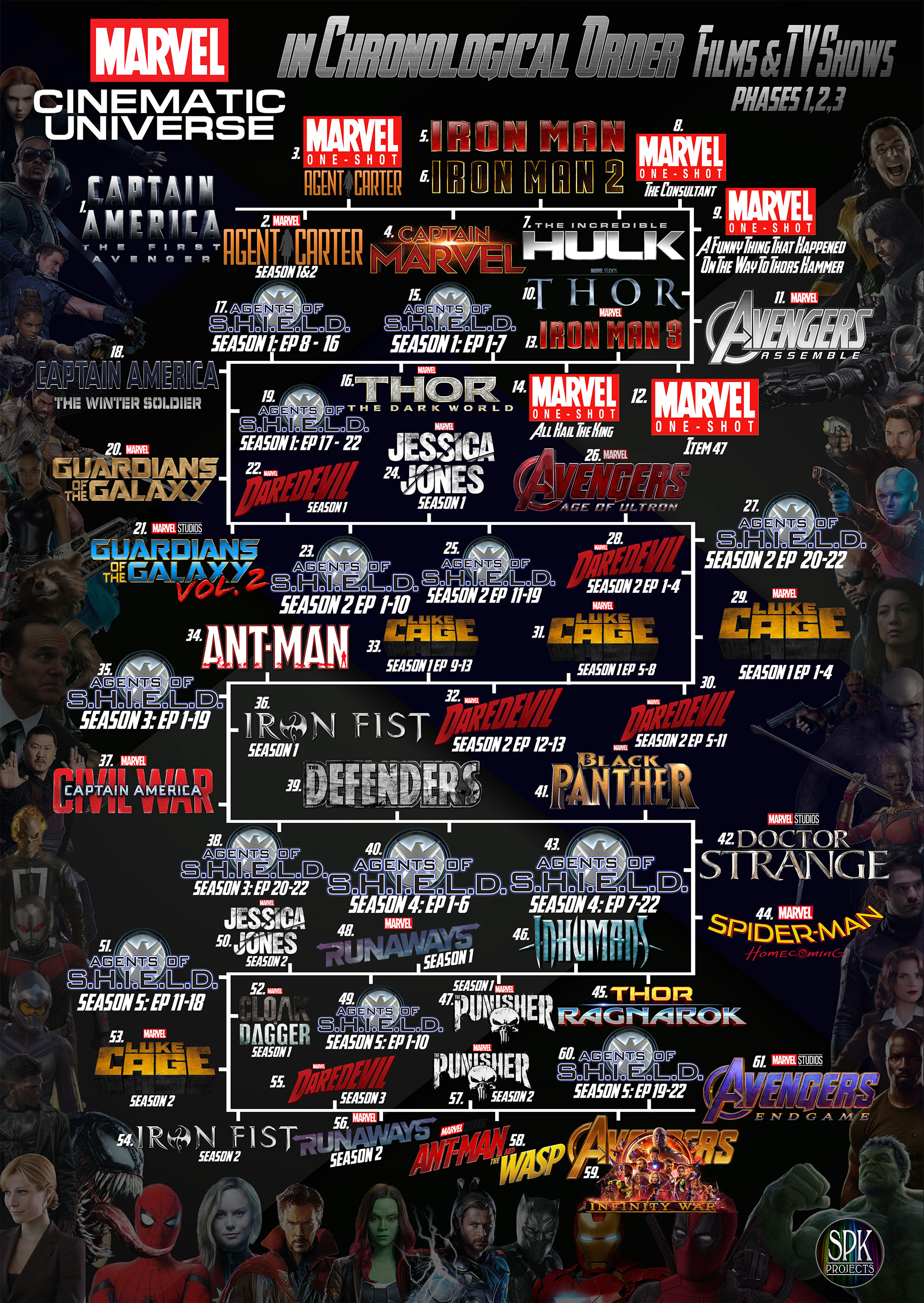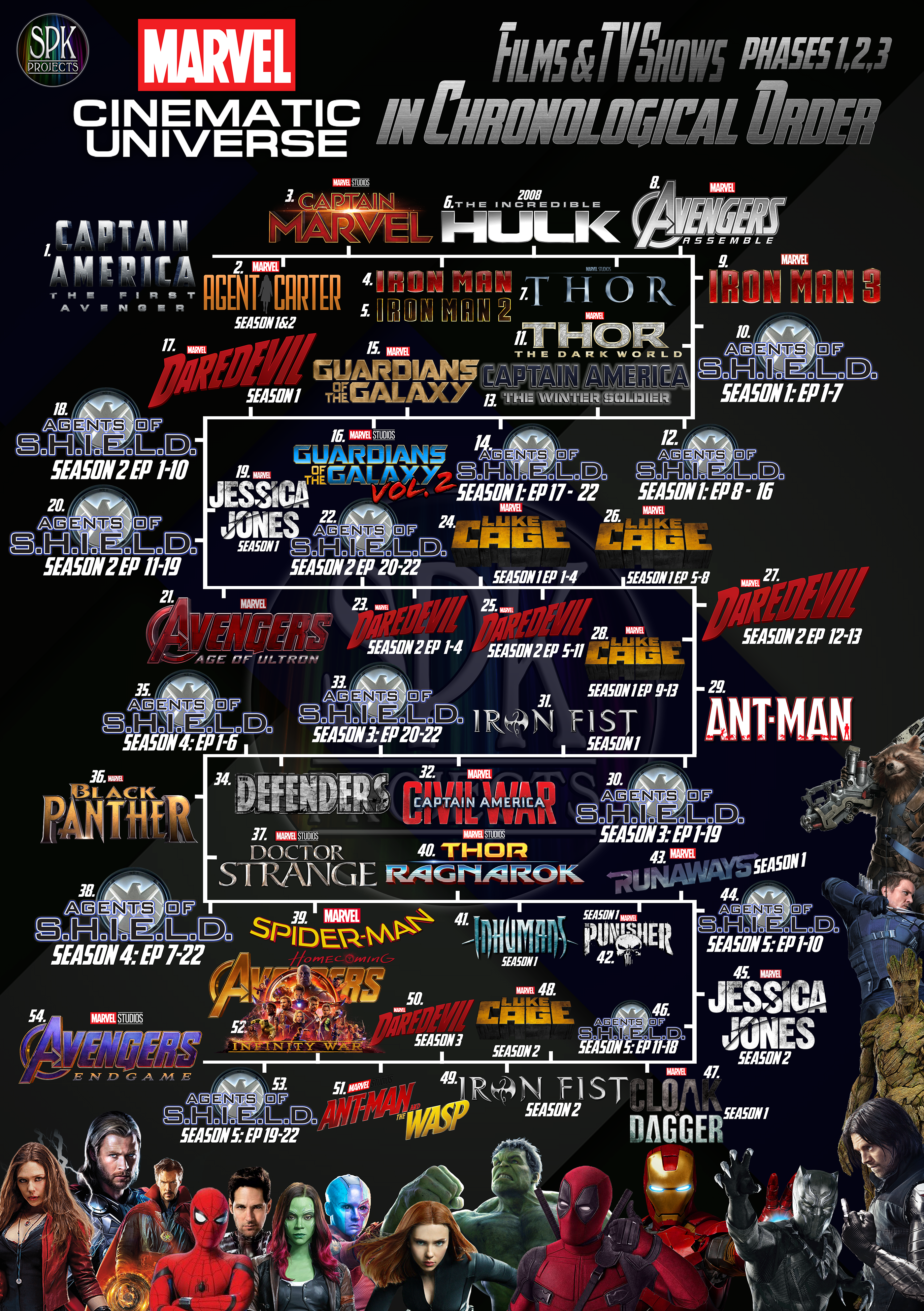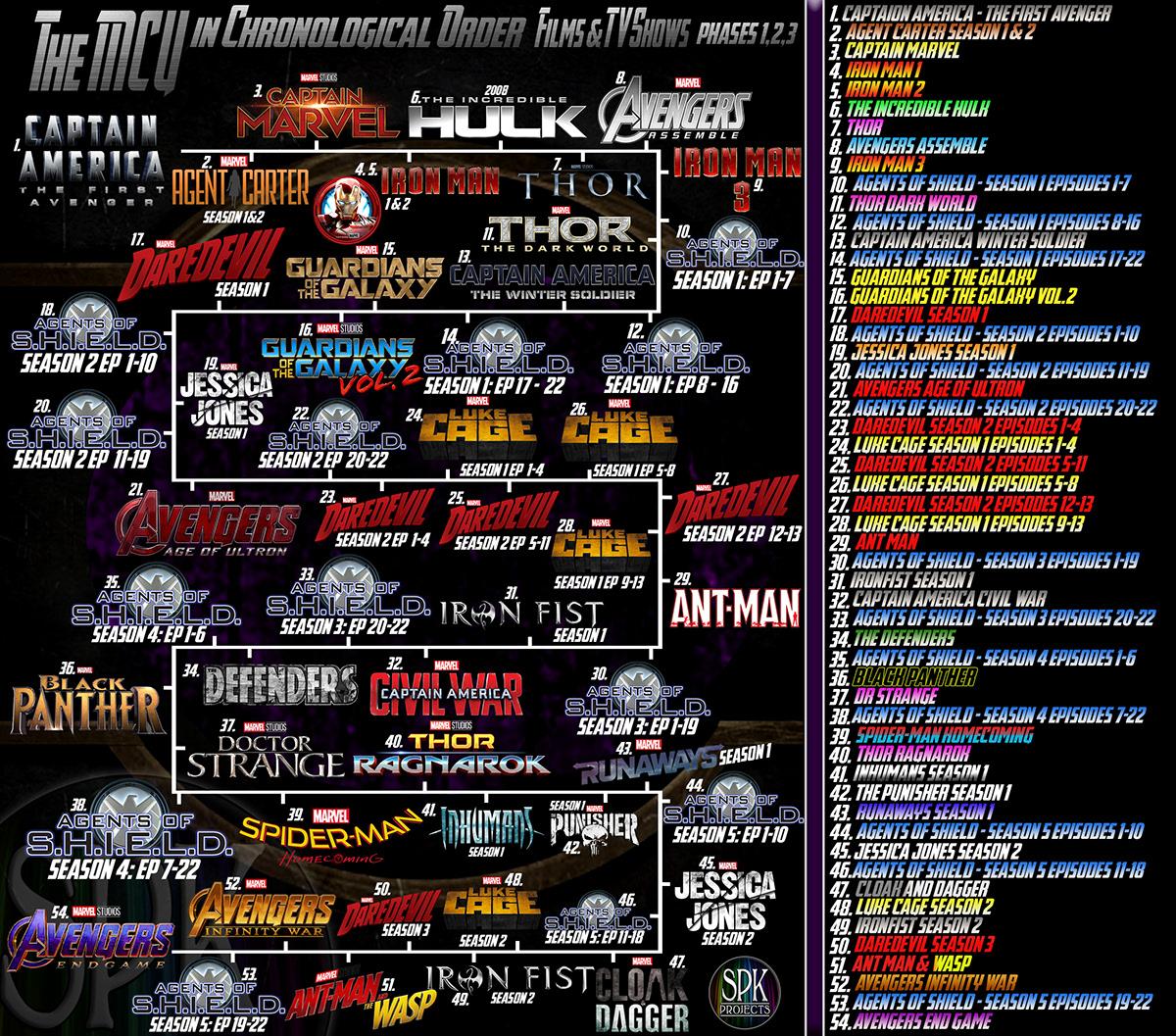The Ultimate Marvel Cinematic Universe Watch Order
Lost in the sprawling multiverse of Marvel? Navigating the Marvel Cinematic Universe (MCU) can feel like traversing an alternate dimension, but fear not, intrepid viewer, for a clear path through this epic saga exists.
The MCU isn't just a collection of superhero films; it's an intricately woven tapestry of interconnected stories, spanning decades of comic book lore and brought to life on the big screen. From the groundbreaking debut of Iron Man in 2008 to the multiverse-shattering events of recent phases, the MCU has captivated audiences worldwide. But with over thirty films and a growing roster of television series, where does one even begin? The age-old question persists: release order or chronological order?
| Name | Kevin Feige |
| Born | June 2, 1973 (Boston, Massachusetts, U.S.) |
| Occupation | Film producer |
| Known for | President of Marvel Studios; Primary producer of the Marvel Cinematic Universe franchise |
| Years active | 1994present |
| Reference | Marvel.com |
For the uninitiated, embarking on the MCU journey in release order is often recommended. This approach allows viewers to experience the unfolding narrative as intended, appreciating the gradual expansion of the universe and the evolving character arcs. Witness the origin stories of iconic heroes like Iron Man, Captain America, and Thor, and feel the impact of each film's contribution to the overarching narrative. This method builds anticipation for future crossovers and allows the shared universe to organically unfold before your eyes, mirroring the experience of audiences who witnessed the MCU's rise to global phenomenon.
The chronological viewing order, however, offers a different perspective. By following the timeline of events within the MCU, from the creation of the Tesseract to the final battle against Thanos, viewers gain a deeper understanding of the cause-and-effect relationships between seemingly disparate events. This approach can illuminate subtle foreshadowing and provide a more linear narrative experience, particularly for those new to the complexities of the MCU's interconnected storylines. It can also add layers of meaning to character motivations and decisions, highlighting the ripple effects of past events on the present.
Consider the early phases of the MCU. Iron Man (May 2nd, 2008), The Incredible Hulk (June 13th, 2008), and Iron Man 2 (May 7th, 2010) laid the groundwork for the shared universe, introducing key characters and concepts like the Avengers Initiative. Following these films with Thor and Captain America: The First Avenger fills in crucial backstory before culminating in the first grand crossover event, The Avengers. This exemplifies the power of the release order, gradually building the world and raising the stakes with each installment.
The Infinity Saga, spanning Phases One through Three, provides a compelling argument for the release order approach. Each phase builds upon the last, culminating in the epic two-part finale, Avengers: Infinity War and Avengers: Endgame. Witnessing the Thanos storyline unfold as it was originally presented allows for maximum emotional impact and underscores the years of meticulous planning and storytelling that went into crafting this monumental saga.
However, the chronological approach shines when exploring the intricacies of the MCUs timeline. For example, watching Captain Marvel before Iron Man provides context for Nick Furys pager message in the post-credits scene, a detail that wouldn't hold the same weight in release order. Similarly, understanding the backstory of the Tesseract through Captain America: The First Avenger enhances the significance of its appearances in subsequent films.
Ultimately, the "best" way to experience the MCU is subjective. Both release order and chronological order offer unique advantages, catering to different viewing preferences. Newcomers might find the release order more accessible, while seasoned fans seeking a deeper understanding of the lore might prefer the chronological approach. Regardless of the chosen path, the MCU promises a thrilling journey through a universe filled with compelling characters, epic battles, and thought-provoking narratives.
With new films and series continuously expanding the MCU, the debate over viewing order is sure to continue. From the What If? series exploring alternate timelines to the introduction of the multiverse, the possibilities seem endless. Whether you choose to follow the path laid out by Marvel Studios or forge your own chronological adventure, one thing is certain: the MCU offers a vast and rewarding universe waiting to be explored.


